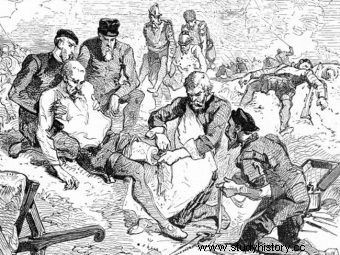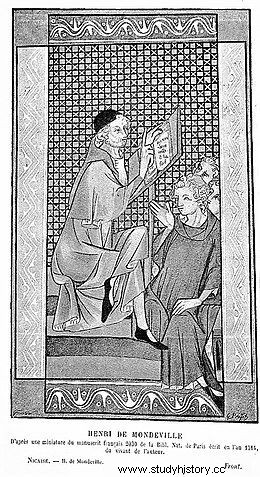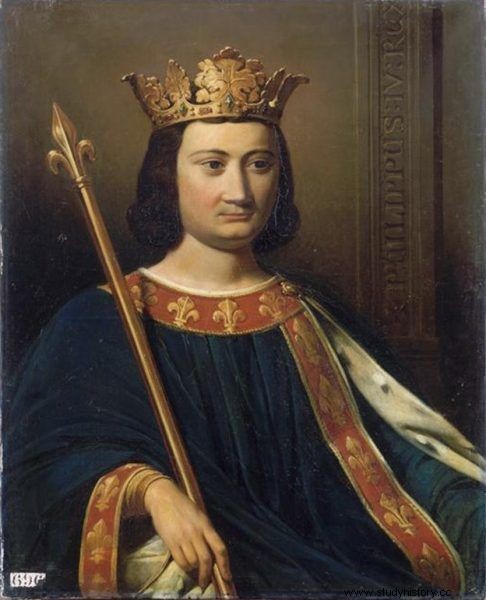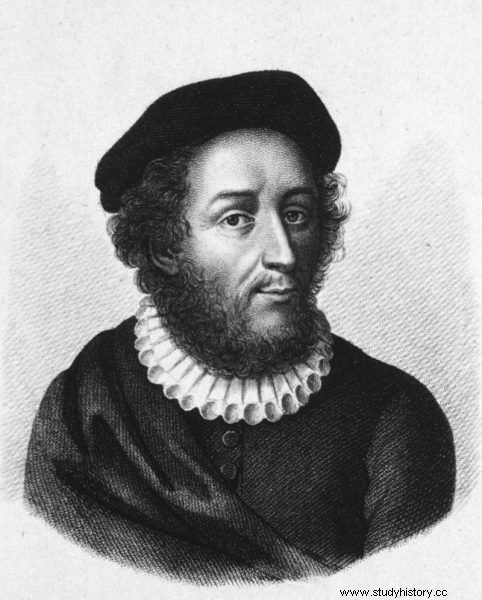Apart from the lack of knowledge about hygiene, the worst thing that could happen to a sick person in the Middle Ages was a doctor. Presumably, among the entire nation of medics, one thing was feared the most - a surgeon straight out of a horror movie

Before anesthesia was invented, surgery was a real horror. Illustrative photo
Henri de Mondeville is today considered the best physician of the Medieval period. Instead of, like most colleagues, avoiding contact with the sick and waiting for God's will to be done, he acted. And that was what frightened his patients the most. Well, for good reason!
The Man from Nowhere
De Mondeville was born somewhere in Normandy and, as was custom, gave himself a surname based on the name of his village. Nevertheless, the exact place where he was born has not yet been possible for historians to determine, as well as the correct pronunciation and spelling of his name and surname. Some say the doctor may have been born in the village of Mandeville near Caen, while others say it was in Emondeville. De Mondeville's successor, Guy de Chauliac, when writing about him uses a changed form of the name "Hermondaville", and in some texts there are other variations:"Mondavilla", "Amondavilla", "Armandavilla", "Amoda villa" or "Mundi villa" ”.

Henri de Mondeville used very innovative methods of treatment
The Hendi de Mondeville version is officially adopted, due to this spelling found in the text from 1314 and in the catalogs of the Louvre library from 1373.
The mystery also envelops de Mondeville's formal education. It is believed that he studied clerical and medical studies in Montpellier and Paris, then went to Italy and became a student of Theodoric, whose line of thought was then dominant at the University of Bologna.
The difficult life of a surgeon
Prepared in this way, in 1301 he was already a royal surgeon - according to the documentation, he accompanied the royal couple on a 234-day journey, for which he received a considerable reward. It must also be remembered that in those days surgery was not a trend in medicine considered to be an appropriate approach to patients - on the contrary, it was often even treated as doing additional damage and an attempt to oppose the divine will. De Mondeville had to be as charismatic as they were adept at their art, since he was hired by the most important people in the country! He served first with Philip IV the Beautiful, and later with Louis X.

The famous surgeon's patient was i.a. Philip IV the Beautiful
Despite such eminent personalities as patients, the surgeon was not always successful. He traveled with the army, and during these military expeditions he had the opportunity to improve the methods of healing wounds promoted by Theodoric in practice. He treated Pope Boniface VIII, Benedict XI and Clement VI. Even so, he complained loudly about the wasted time and the paucity of payouts. As he himself wrote, "Sometimes I can't write even a line of text a day because I have to run to schools and places all day long to earn a living."
The writing he mentions is about his life's work - the medical book Chirurgie , which is also the first French scientific text on surgery, thanks to which de Mondeville is treated as the father of this field of science in the country of wine and cheese.
The punishment for sins
De Mondeville was an innovative physician, but medieval superstition and memento mori paradoxically, they helped him in his profession. Patients believed that all suffering was a punishment for sins and that disease was as terrible as its treatment. It was all right because de Mondeville's methods involved fear and suffering.
This is best described by a sentence written by the surgeon himself:
Any sparing of patients is dangerous for the surgeon, even if the wound can be gently dressed. All ordinary uneducated people do not trust such surgeons and mock those who act softly because they think they are skittish, weak and inexperienced ...
Writes de Mondeville. He would probably have acted differently himself, but he had to work under such and no other conditions. Well there was to be done.
Therefore, the preparation for the operation was usually to immobilize the patient with the help of the strongest helpers found in the area. Many of them fainted during the procedure, at the sight of blood and wounds, so the work increased as they progressed - the surgeon had to treat additionally broken heads and contusions.
A wine is good for everything
Nothing strange. De Mondeville operated at a time when there was no question of any kind of anesthesia. He performed amputations, stopped haemorrhages and dressed wounds extending to internal organs. His greatest achievement, according to modern doctors, was his rejection of the belief that suppuration is a key process in healing. While Theodoric was still an advocate of dilating wounds and inducing suppuration on purpose, de Mondeville devised a completely different method.
He did not touch the wound unnecessarily, and he certainly did not cause more bleeding, instead trying to stop it after removing the foreign bodies. Then he washed the damaged tissues with wine (this also applied to the internal organs) and put on dressings made of cloth soaked in wine - also with wine. He tried to keep the wound moist, believing that contact with air was the most dangerous for the patient.

Guy de Chauliac unfortunately did not continue the innovative methods of his predecessor
He recommended that the wounds of the intestines be sutured, and then also washed with wine, dried and sprinkled with a "scarring powder" composed of dried pomegranate root and flowers, as well as rotten oak wood (which could be, quite by accident, a preventive measure against infection, because some fungi decompose wood gives off natural antibiotics).
I have seen wounds of this kind that were immediately closed and sutured with modern methods, healed in a short time, without pain, with one dressing, while similar patients treated in the old fashion had stomachs full of pus and died. This fact requires no further comment
- emphasized de Mondeville.
Interestingly, after de Mondeville's death in 1320, his method - both terrifying and more effective than previously used - was abandoned by his immediate successor, Guy de Chauliac. This is how the beginning of antiseptic surgery was lost , forgotten, almost six hundred years before the invention of modern disinfectants.
